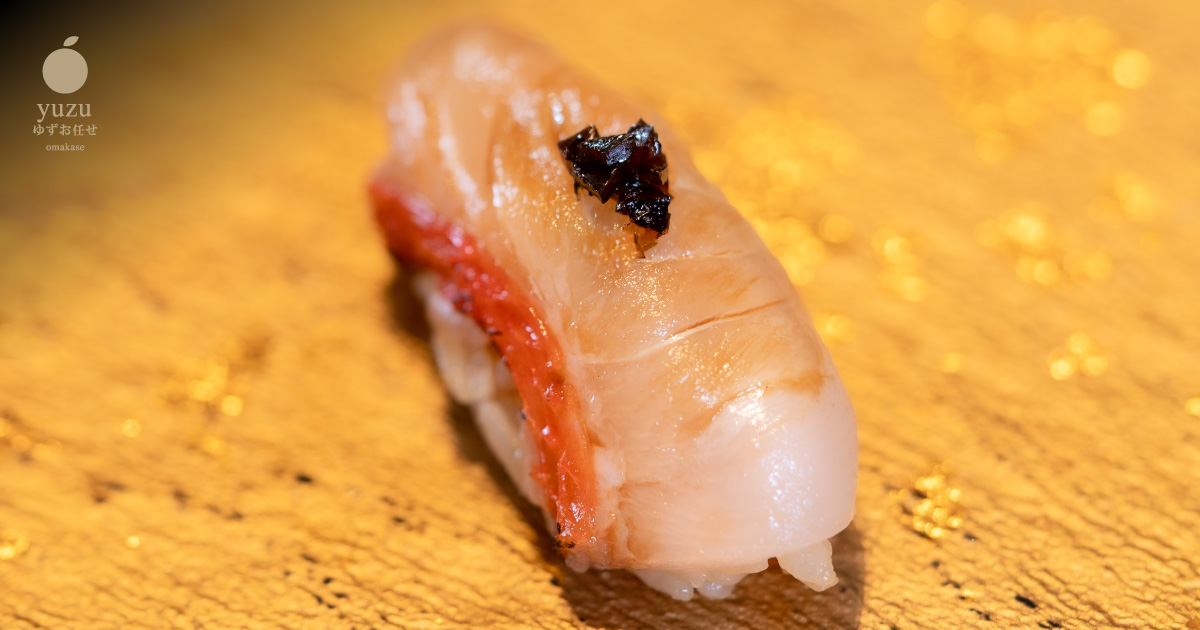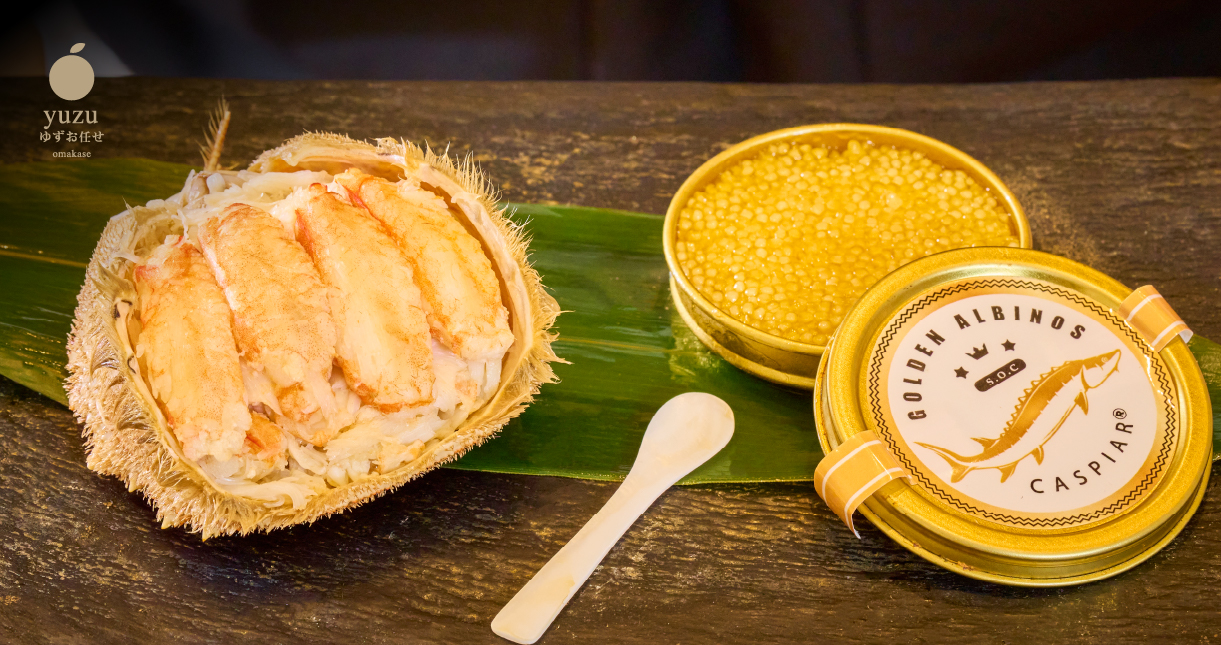
The Role of Fresh Ingredients in Japanese Food Culture: A Wellness Perspective
A Deep Connection Between Food and Well-Being in Japan Japanese cuisine is renowned for its simplicity, elegance, and focus on natural flavors. At the heart of this cuisine is a profound respect for fresh, seasonal ingredients, which play a central role in Japanese food culture. The emphasis on using fresh, nutritious ingredients not only enhances the taste and texture of the food but also supports overall health and well-being.
Our Creations ● 2024 Oct 18
The Role of Fresh Ingredients in Japanese Food Culture: A Wellness Perspective
In this article, we’ll explore the role of fresh ingredients in Japanese food culture, highlighting how this emphasis contributes to a balanced, nutritious diet and promotes a wellness-focused lifestyle. Whether it's the seafood, vegetables, or grains, Japanese cuisine is a celebration of nature's bounty, delivering both flavor and health benefits.
1. Freshness as the Foundation of Japanese Cuisine
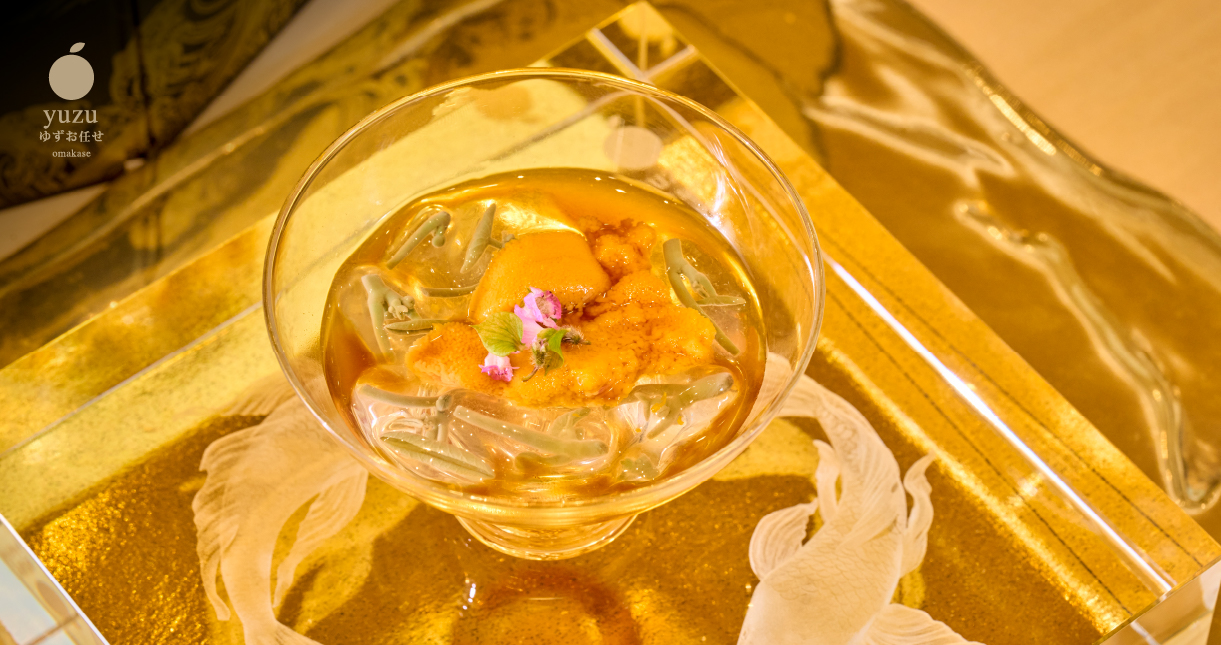

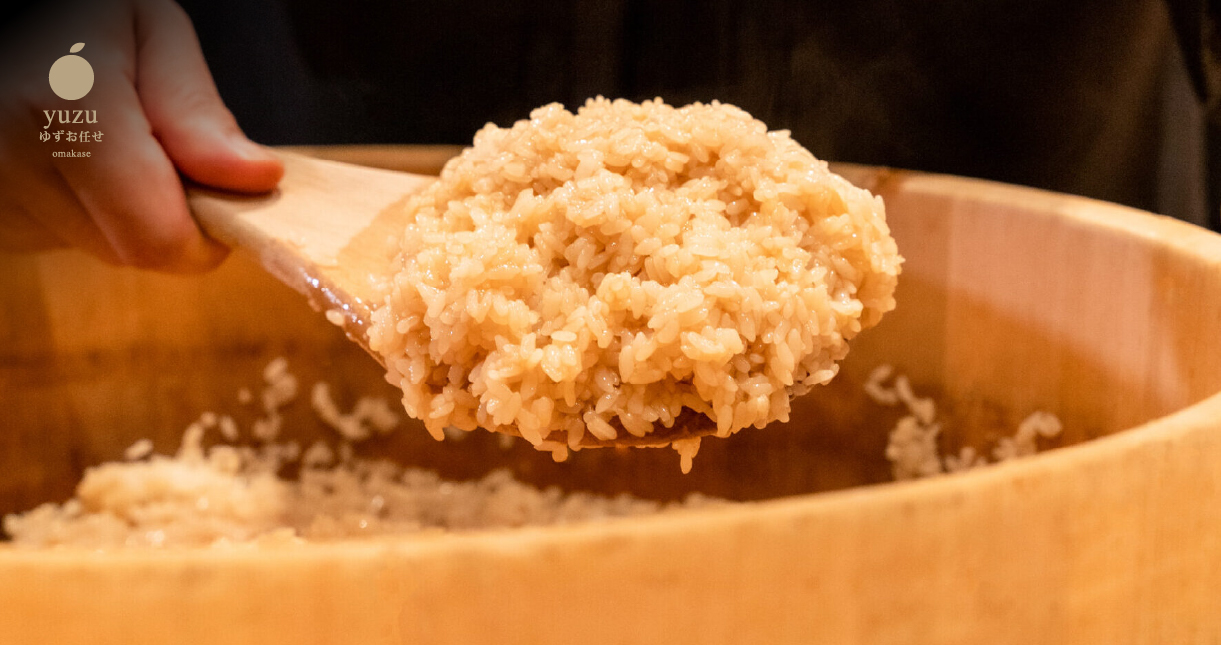
The cornerstone of Japanese cooking is the belief that the best flavors come from the freshest ingredients. Japanese chefs strive to bring out the natural essence of each ingredient, often with minimal seasoning or preparation. This respect for ingredients not only honors the seasons but also aligns with the traditional Japanese philosophy of mindful eating—where simplicity and freshness lead to better health and enjoyment.
The Japanese Concept of “Shun”
In Japan, the concept of shun refers to the idea of consuming food at its peak seasonality. When ingredients are at their most flavorful and nutritious, they are said to be in their "shun." This focus on seasonal ingredients ensures that dishes are made with the freshest possible components, which not only enhances the taste but also maximizes the nutritional value of each meal.
At Yuzu Omakase, we embrace this concept by selecting only the freshest, in-season ingredients to create dishes that reflect the best of what each season has to offer. Whether it’s fresh seafood, crisp vegetables, or perfectly ripened fruit, the focus is on delivering a meal that aligns with nature’s rhythms.
Wellness Highlight
The Japanese philosophy of shun encourages mindful consumption of seasonal ingredients, which are more flavorful, nutritious, and beneficial for overall health.
2. Nutrient-Rich Ingredients: The Pillars of Japanese Cuisine
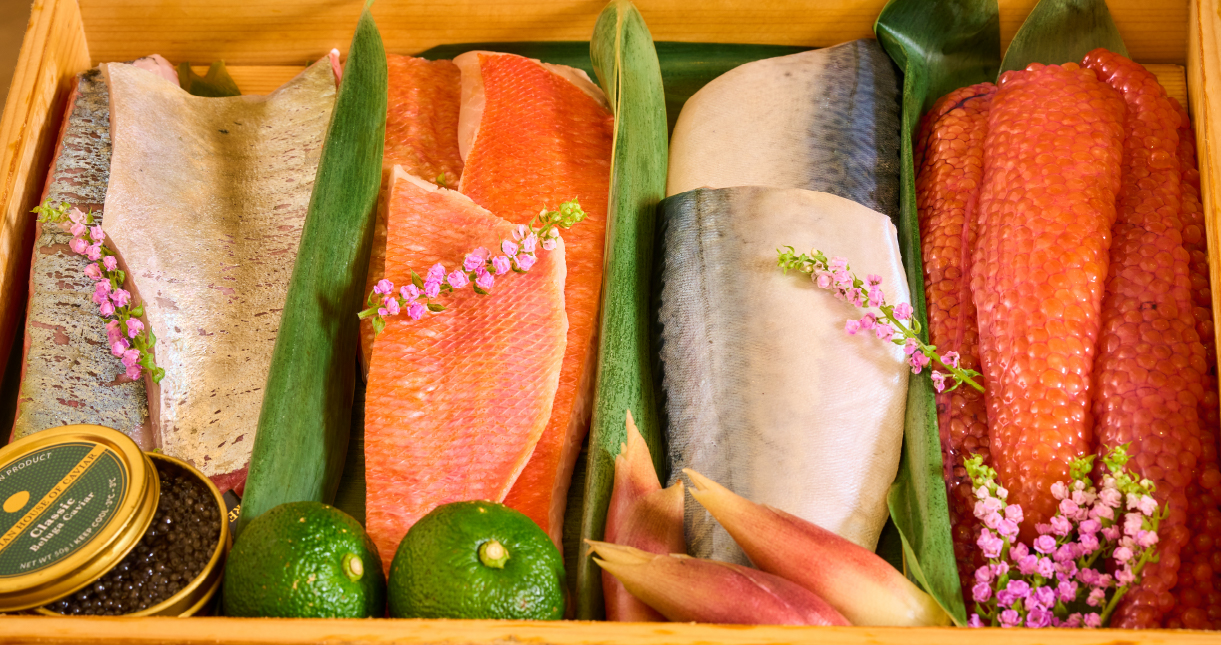
In addition to freshness, Japanese cuisine is built around a foundation of nutrient-dense ingredients that support a balanced and health-conscious diet. From omega-3 rich fish to fiber-packed seaweed, the ingredients commonly used in Japanese dishes are not only delicious but also packed with essential nutrients that promote well-being.
Fish: A Rich Source of Omega-3 Fatty Acids
Fish, particularly fatty fish such as salmon, mackerel, and tuna, are staples in the Japanese diet and are renowned for their high levels of omega-3 fatty acids. Omega-3s are known for their heart-protective benefits, reducing inflammation, and supporting brain health. The regular consumption of fresh fish is one of the reasons why Japan has some of the lowest rates of heart disease in the world and is associated with longevity and overall wellness.
At Yuzu Omakase, we serve only the freshest fish, selected daily from trusted suppliers. Whether enjoyed as sashimi, nigiri, or in an omakase experience, each dish is designed to highlight the freshness of the fish, allowing diners to enjoy both the flavor and the health benefits.
Wellness Highlight
Regular consumption of omega-3 rich fish supports heart health, reduces inflammation, and promotes longevity.
Vegetables: Seasonal, Fresh, and Full of Fiber
Fresh vegetables play a significant role in Japanese cuisine, with an emphasis on seasonal varieties that offer both flavor and nutrition. Daikon radish, spinach, bamboo shoots, and shiitake mushrooms are just a few examples of the vegetables commonly used in Japanese cooking, all of which are rich in vitamins, minerals, and fiber. These vegetables are often lightly cooked or served raw to preserve their natural nutrients.
The focus on fresh, locally sourced vegetables in Japanese cuisine provides a wide range of health benefits, from improved digestion to enhanced immune function. At Yuzu Omakase, we use only the freshest vegetables to complement our sushi and sashimi, ensuring that every meal is not only delicious but also nourishing.
Wellness Highlight
Fresh, seasonal vegetables are full of fiber and antioxidants, promoting digestive health and supporting the immune system.
Rice: The Nutrient-Rich Staple of Japanese Cuisine
Rice is the foundation of many Japanese meals, especially sushi. Japanese short-grain rice, known for its slightly sticky texture, is an excellent source of complex carbohydrates that provide a steady release of energy throughout the day. In addition to being an energy source, rice contains essential nutrients like B vitamins, which are vital for energy metabolism and brain health.
At Yuzu Omakase, our sushi rice is prepared with care, seasoned with rice vinegar to enhance its flavor and digestibility. Paired with fresh seafood and vegetables, the rice creates a well-balanced, nutrient-dense meal that sustains both the body and mind.
Wellness Highlight
Japanese rice is a healthy source of complex carbohydrates that support sustained energy and overall well-being.
3. Fresh Seafood: A Key to Vitality and Health
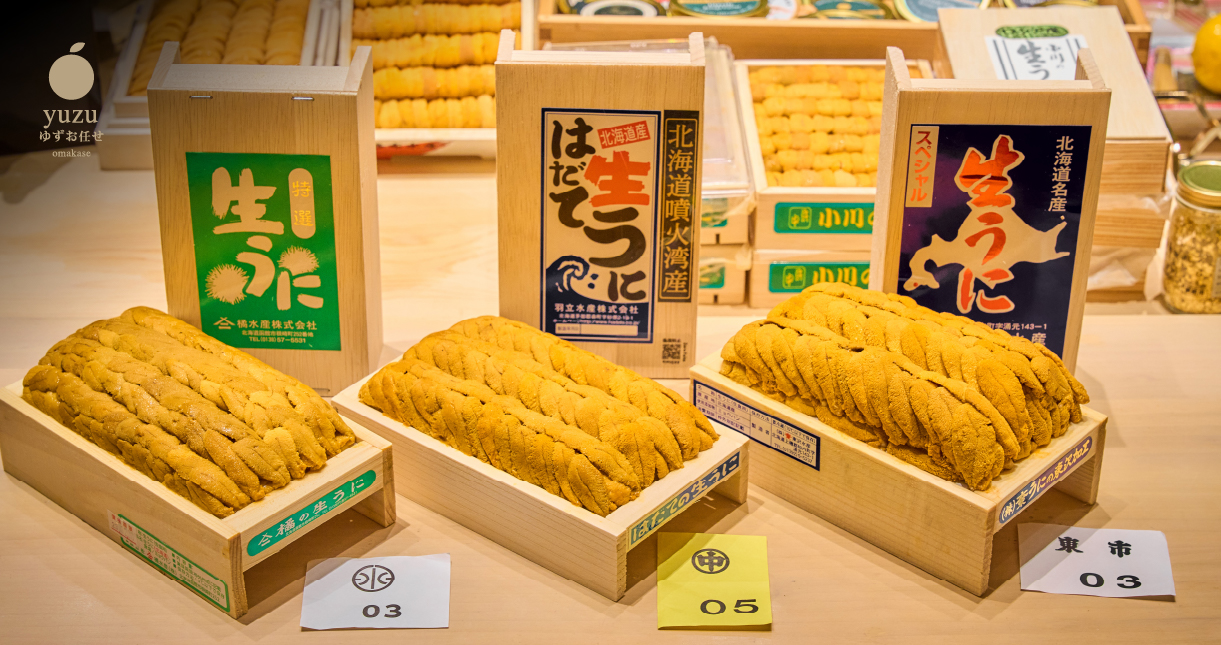
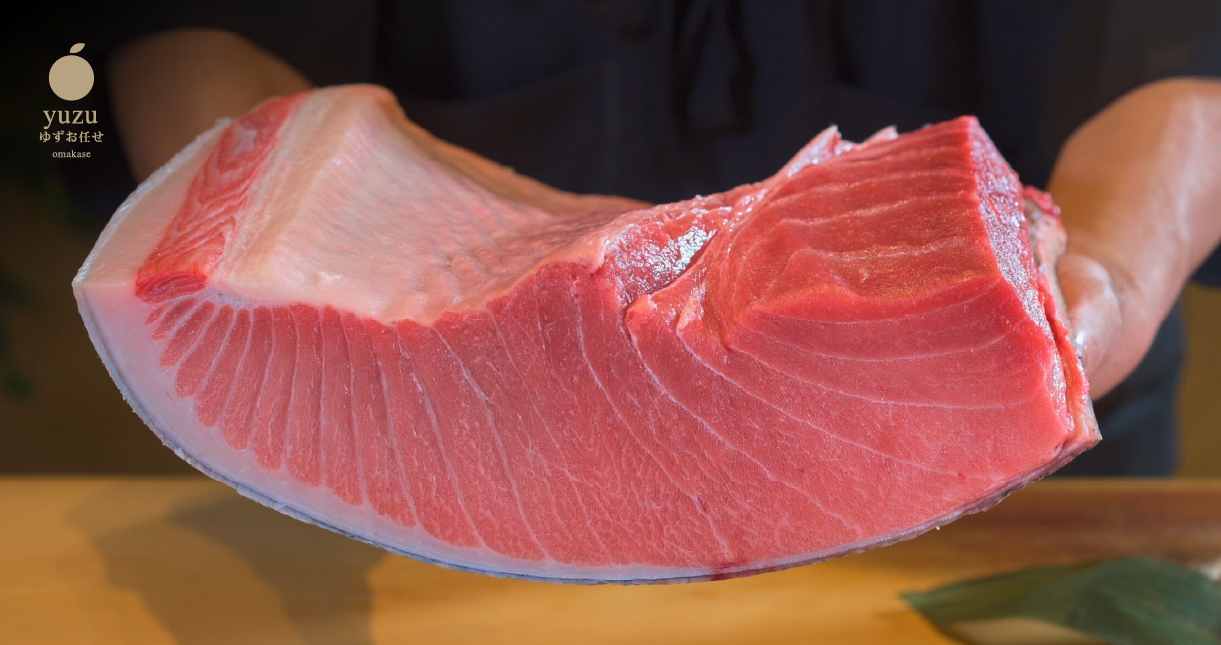
Seafood is central to Japanese food culture, not only for its flavor but for its health benefits. Fresh fish and shellfish are packed with high-quality protein, omega-3 fatty acids, and a range of essential vitamins and minerals that contribute to heart health, brain function, and skin vitality.
The Importance of Freshness in Seafood
Freshness is crucial when it comes to seafood, as the nutritional quality of fish begins to degrade soon after it is caught. Japanese chefs prioritize using only the freshest catch to ensure the flavor, texture, and health benefits are preserved. At Yuzu Omakase, we source the freshest seafood, often directly from Japan, to create an authentic dining experience that reflects the high standards of Japanese cuisine.
Whether it’s succulent uni (sea urchin) or delicate slices of otoro (fatty tuna), each piece of seafood is chosen for its freshness, allowing diners to enjoy both the flavor and the nutritional benefits that fresh seafood offers.
Wellness Highlight
Fresh seafood is rich in high-quality protein and omega-3s, promoting heart health, brain function, and overall vitality.
4. Seaweed: A Superfood in Japanese Cuisine
Seaweed, such as nori, wakame, and kombu, is a vital component of Japanese cuisine and is considered a superfood due to its high concentration of essential nutrients. Seaweed is an excellent source of iodine, which supports thyroid health, as well as calcium, iron, and magnesium, all of which contribute to bone health and energy production.
Health Benefits of Seaweed
Seaweed is not only nutrient-rich but also low in calories, making it a perfect addition to a wellness-focused diet. It contains soluble fiber, which promotes digestive health and helps regulate blood sugar levels. Additionally, seaweed is packed with antioxidants, which protect the body from oxidative stress and inflammation.
In Japanese cuisine, seaweed is often used to wrap sushi, flavor soups, or garnish dishes, adding both nutritional value and a distinctive umami flavor. At Yuzu Omakase, we incorporate fresh seaweed into many of our dishes to enhance both flavor and health benefits.
Wellness Highlight
Seaweed is a low-calorie, nutrient-dense superfood that supports thyroid health, digestion, and overall well-being.
5. A Holistic Approach to Dining: Wellness Through Food
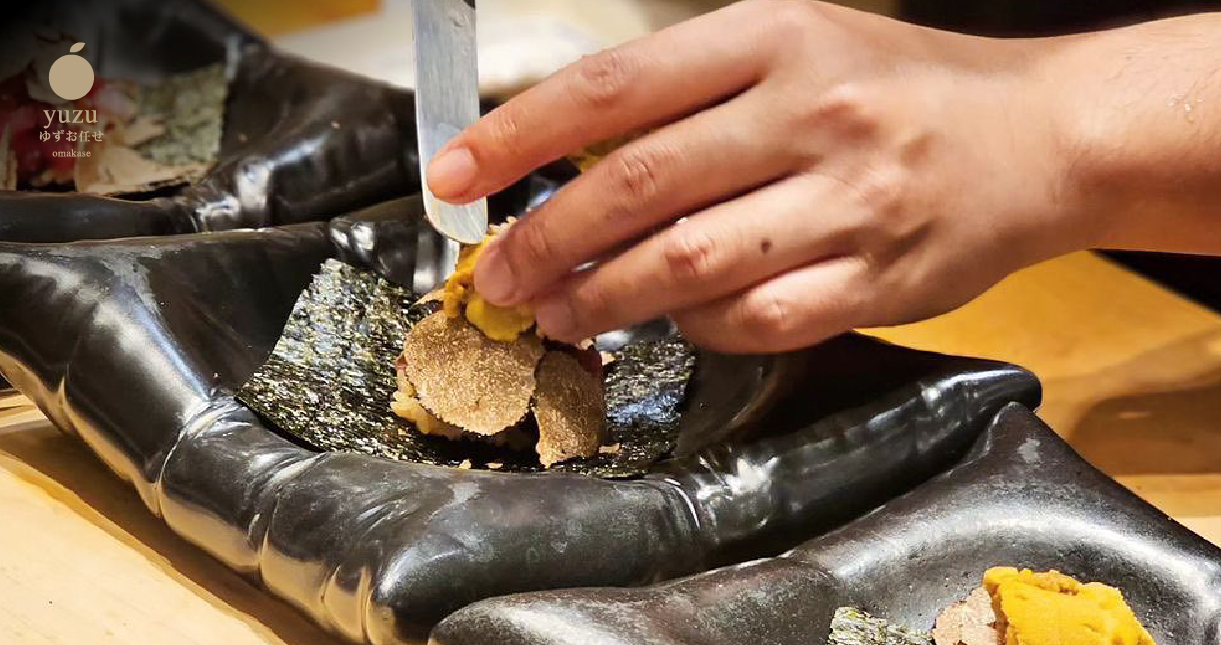
Japanese cuisine is about more than just eating; it’s a holistic approach to wellness that encompasses mindfulness, balance, and a connection to nature. The emphasis on fresh ingredients, seasonal eating, and balanced portions reflects a deep understanding of how food nourishes both the body and the mind.
At Yuzu Omakase, we embrace this holistic approach by creating dishes that honor the principles of Japanese food culture. From the careful selection of the freshest ingredients to the thoughtful preparation and presentation, our goal is to provide a dining experience that not only delights the senses but also promotes well-being.
Mindful Eating for Well-Being
In Japan, eating is seen as an opportunity to practice mindfulness, where diners are encouraged to appreciate the textures, flavors, and origins of their food. This mindful approach to eating fosters a deeper connection with the meal and promotes a sense of gratitude and well-being.
At Yuzu Omakase, we invite our guests to embrace mindful eating, taking the time to savor each bite and appreciate the freshness and quality of the ingredients. This focus on mindfulness is central to the Japanese dining experience and contributes to the overall wellness of the diner.
Wellness Highlight
Practicing mindful eating enhances the dining experience, promotes better digestion, and fosters a sense of inner calm.
Conclusion: Fresh Ingredients and Wellness at Yuzu Omakase
The emphasis on fresh, seasonal ingredients in Japanese food culture is not only a reflection of culinary tradition but also a testament to the health benefits of eating mindfully and naturally. At Yuzu Omakase, we are proud to carry on this tradition by serving dishes made from the freshest ingredients, carefully selected and prepared to nourish both the body and the mind.

RELATE






